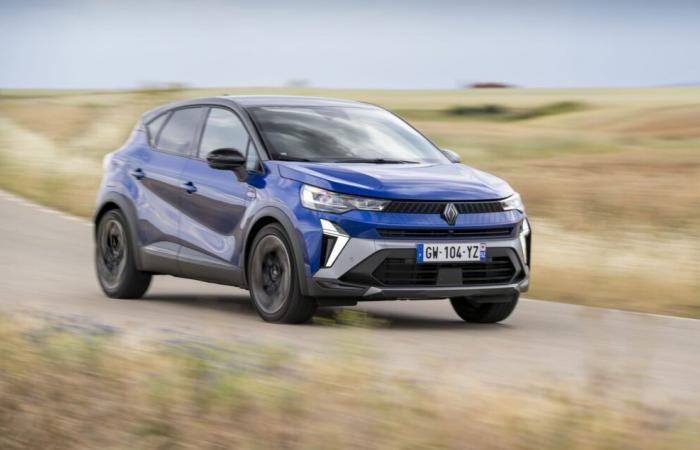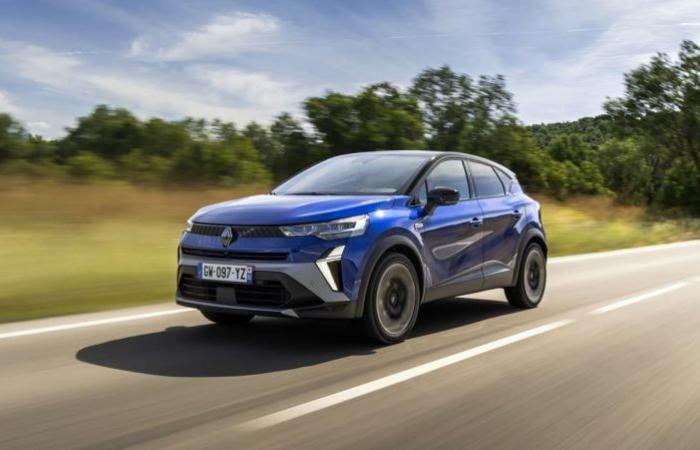After the commercial success of the first generation, Renault still redesigned its Captur from top to bottom in 2019. Which was not necessarily visible from the outside to the general public. But in the cabin, the small Renault SUV has set the bar quite high in terms of ergonomics and perceived quality, adding road performance that is still convincing and maintaining good modularity. The icing on the cake is that the range of engines has been very wide for a time with petrol – LPG compatible –, diesel, hybrid (March 2021) and even plug-in hybrid. It's impossible not to find the right fit, especially since all these mechanics were rather convincing in their own way.. But since the period is moving towards rationalization, each restyling becomes a pretext for cutting engine ranges. The Renault Captur was no exception during its mid-career makeover in April.
Fine you TCe 160
In fact, the planing had already started with the disappearance of diesel in 2021. But 2024 still marks a double disappearance with the abandonment of the 160 hp plug-in hybrid and very recently the end of the TCe 160 EDC. This mechanism made the Captur a small exception among urban SUVs since apart from its ASX-badged twin from Mitsubishi, it has been quite a while since any small crossover has offered thermal mechanics with high power. This was the case of the Captur TCe 160 which still released the excellent 1.3 4-cylinder turbo, necessarily associated with the 7-speed dual-clutch automatic transmission.of which we could appreciate the smoothness of operation and the relative sobriety.
Only two engines left for the Renault Captur
This disappearance recorded, there are only two engines left to power this Captur: the 3-cylinder 1.0 turbo available in 90 hp or 100 hp when it is LPG compatible and the 145 hp hybrid. We can still be surprised that Renault still gives its customers the choice of opting for the TCe 90 or the ECO-G 100, which are only €100 apart upon purchase. Because it must be remembered, LPG compatibility only presents advantages. The engine remains fully compatible with SP95 or SP98 and does not require any manipulation on your part to switch from unleaded to gas. And when it runs on LPG, you are guaranteed to benefit from a mileage cost that is significantly lower than unleaded, even taking into account a slight excess consumption inherent to this fuel..
For its part, the E-Tech 145 mechanics remain the most relevant in the long term. First by offering extremely low consumption in town and then by remaining reasonable on other types of routes. It remains to digest the additional €3,600 for the purchase regardless of the finish.
- Renault Captur TCe 90: from €25,700
- Renault Captur ECO-G 100: from €25,800
- Renault Captur E-Tech 145: from €29,400







